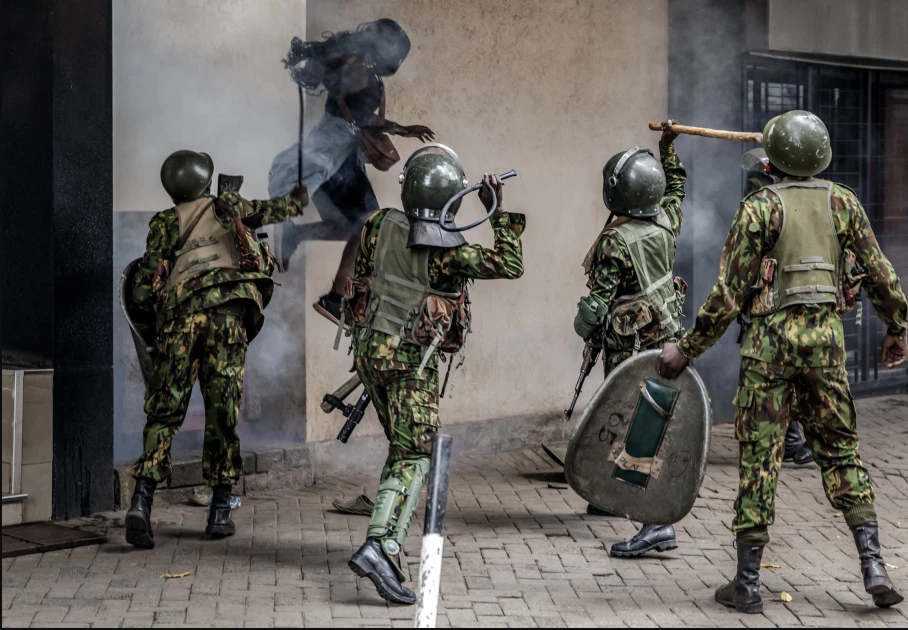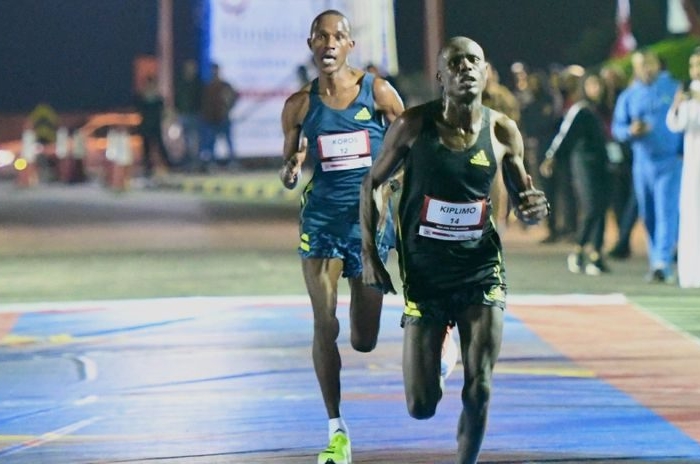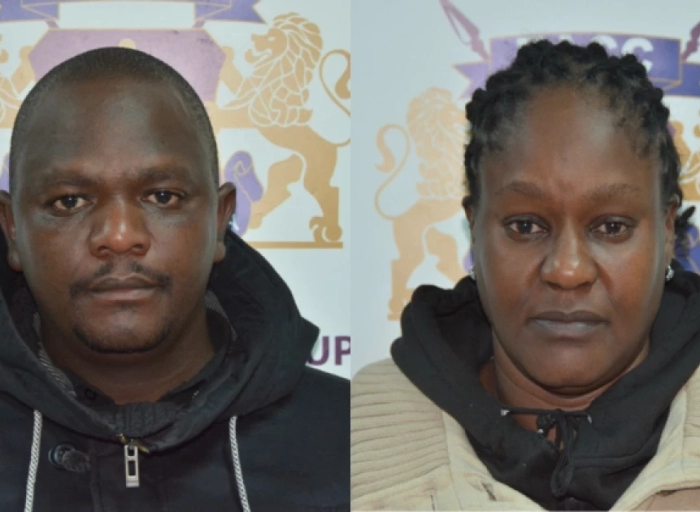A new report by Kenya’s Independent Policing Oversight Authority (IPOA) has exposed serious flaws in the handling of recent public protests, raising urgent concerns about police accountability, excessive force, and violations of constitutional rights.
The July 2025 report, which analyzes demonstrations sparked by the death of Albert Ojwang’ in police custody, paints a troubling picture of law enforcement during protests held in June and July across multiple counties.
Key Findings: Identification Violations and Excessive Force
IPOA documented that officers deployed to manage protests did not display name tags or service numbers, in violation of CAP 84 of Kenyan law. Additionally, plainclothes civilians with whips were observed among security personnel, raising concerns about irregular and unregulated participation in crowd control.
Despite the mostly peaceful nature of a June 12 protest in Nairobi — held without formal notification under the Public Order Act — police responded by blocking key roads and deploying armed personnel, both uniformed and undercover.
During a subsequent protest on June 17, also in Nairobi and Mombasa, a demonstrator, Boniface Mwangi Kariuki, was fatally shot. IPOA launched an investigation, resulting in the prosecution of one officer, Klinzy Masinde Barasa (Criminal Case No. 010 of 2025).
Escalating Violence and Civilian Harm
The IPOA report recorded 65 civilian deaths, 342 injuries to civilians, and 171 injuries to police officers from the protests — but only five deaths were officially reported by police. This underreporting undermines the transparency and integrity of police oversight.
In addition to the loss of life, the protests saw widespread destruction of public and private property, including the burning of police stations, vandalism of banks, supermarkets, and government buildings, and looting across Nairobi, Meru, Embu, Kirinyaga, Nyandarua, and other counties.
Shortcomings in Police Welfare and Medical Response
IPOA observers found no deployment of medical teams or ambulances at protest sites, as required by law. Officers also lacked meals, water, and allowances, raising questions about the sustainability and preparedness of police operations.
Use of unmarked vehicles, hidden license plates, and absence of officer identification obstructed IPOA’s ability to trace those responsible for unlawful actions. Notably, Mombasa stood out as the only region where police handled protests with professionalism and adherence to human rights standards.
Legal Gaps and Policy Recommendations
The report also identified gaps in the Public Order Act, especially regarding the lack of legal recognition for counter-protests and spontaneous demonstrations. IPOA documented cases where commanding officers refused to accept protest notifications, violating the law that requires such refusals to be documented in writing.
To address these challenges, IPOA has issued a comprehensive set of reform recommendations, including:
- Mandatory display of name tags and service numbers for all officers during protests.
- Clear vehicle markings and removal of concealed license plates.
- Deployment of medical personnel and ambulances during demonstrations.
- Body-worn cameras and video recordings for enhanced accountability.
- Transparent police recruitment to improve the officer-to-citizen ratio (currently 1:600 vs. the recommended 1:450).
- Creation of a Public Hospital Security Unit to safeguard medical facilities during unrest.
- Development of a public order management policy in partnership with Parliament and civil society.
- National civic education campaigns to raise awareness about the right to peaceful protest.
- Strengthening County Policing Authorities and community policing structures to rebuild public trust.
A Call for Rights-Based Policing
This report underscores a critical inflection point in Kenya’s policing framework. With public unrest rising and trust in law enforcement eroding, IPOA’s findings call for systemic change, not just reactive measures. Upholding constitutional rights under Article 37 — including freedom of assembly and peaceful protest — is not optional; it is essential for a democratic society.
As the nation reflects on the tragedies and breakdowns of recent months, the IPOA’s recommendations offer a path forward — one rooted in transparency, accountability, and human rights-based policing.




